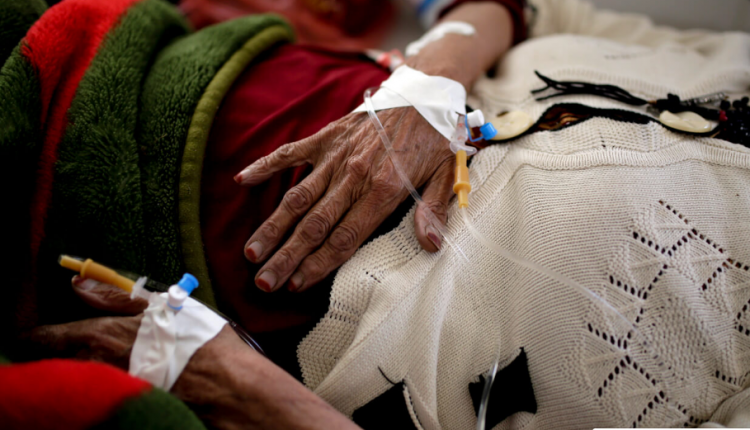Yemen’s Worsening Cholera Outbreak
YemenExtra
SH.A.
By
Yemen’s new outbreak of cholera continues to spread rapidly:
“The numbers of people who come to our hospital for cholera complications are just unimaginable,” said Abdel-Moghni, a relative of the doctor who died. “Every day there is death, and the day that passes without deaths is an exceptional day.”
Almost 300 people have already died this year, and unfortunately that numbers seems certain to keep rising. Most Yemenis don’t have access to clean water, and malnutrition is widespread. Damage to treatment plants and lack of fuel for water pumps make what little clean water there is very expensive. The current outbreak is severe, and the U.N. says the disease is spreading like “wild-fire.” According to the doctors responsible for treating the disease, this year’s outbreak is worse than in 2017:
The rates last month are comparable to the first weeks of 2017, when cases jumped to 10,000 and 20,000 a week. It accelerated to 50,000 a week at its height and went on to infect more than 1 million people before waning in mid-2018.
“The outbreak this year is much worse and the situation is very dangerous,” said Adel al-Alamni, head of the cholera treatment center at al-Sabeen.
Like the rest of Yemen’s humanitarian crisis, the latest outbreak of cholera is the result of the destruction and upheaval caused by the war. All parties share responsibility for the deteriorating situation, but Saudi coalition bombing and policies have contributed significantly to creating the conditions for the quick spread of the disease:
Health services and trash collection have further broken down because about 1 million government employees have largely gone unpaid since the Central Bank was moved in 2016 from Houthi-controlled Sanaa to the southern city of Aden. Nearly half the prewar health facilities are no longer working, often because they were damaged by airstrikes.
The recent death of one of the doctors working at al-Sabaeen hospital in Yemen, reported first by Reuters, illustrates how the disease can spread in a population that hasn’t been vaccinated:
Health workers dealing with cholera patients have not received vaccinations, al-Mansouri said, noting doctors are left without protection. Infection control in health facilities is almost nonexistent because of the lack of resources, making staff vulnerable, he said.
Hardly anyone in Yemen has been vaccinated against cholera. U.N. officials have said agencies largely have been unable to bring in vaccines because of the difficulty in delivering them amid the conflict. The only vaccination campaign so far took place in a few districts in 2018 and covered 400,000 people.
The potential is great for a new and even larger cholera epidemic than in 2017, and it is one more reason why Yemen desperately needs a halt to the fighting and a massive humanitarian relief effort.

